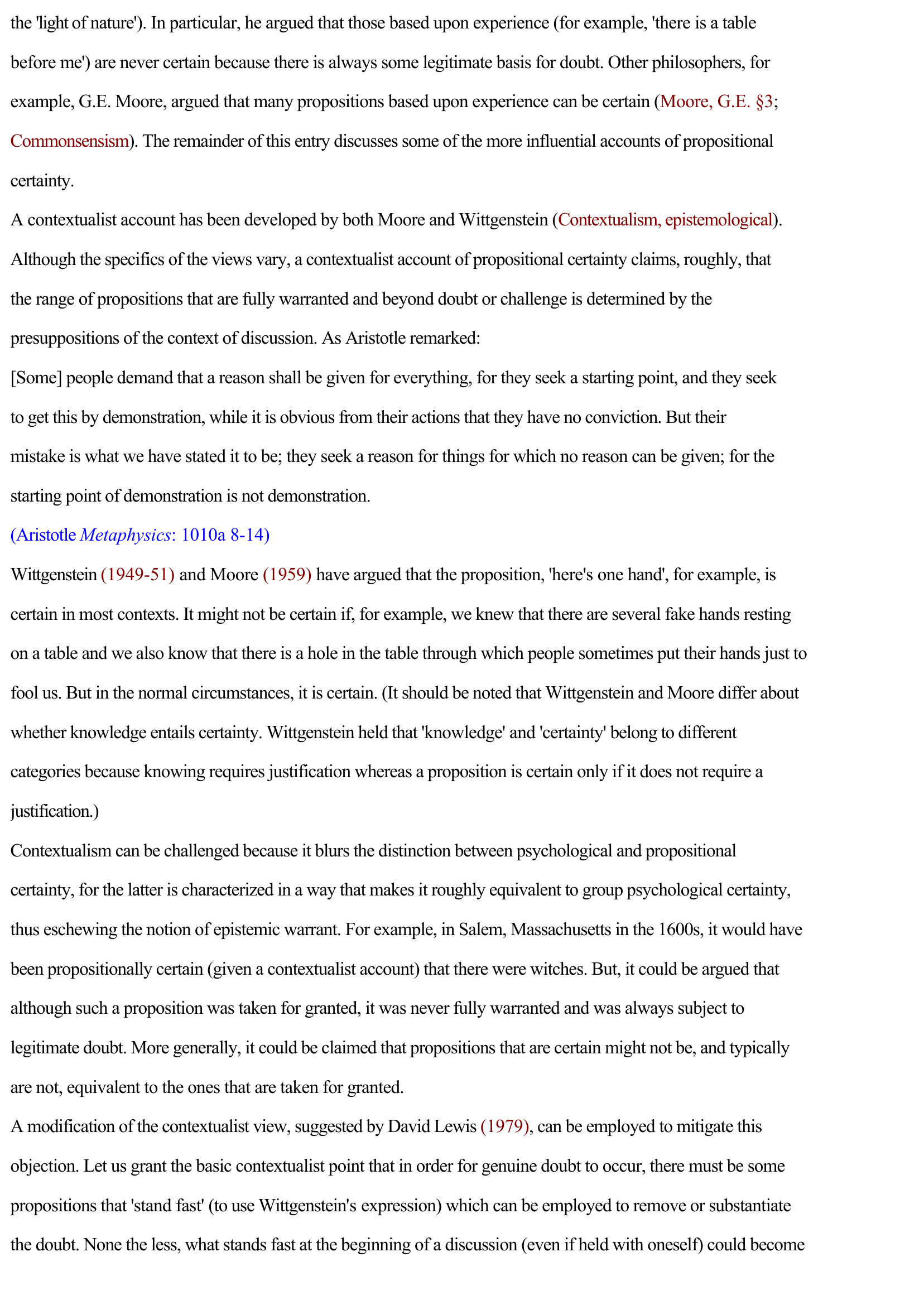Certainty
Publié le 22/02/2012
Extrait du document
«
the 'light of nature' ).
In particular, he argued that those based upon experience (for example, 'there is a table
before me' ) are never certain because there is always some legitimate basis for doubt.
Other philosophers, for
example, G.E.
Moore, argued that many propositions based upon experience can be certain ( Moore, G.E.
§3 ;
Commonsensism ).
The remainder of this entry discusses some of the more influential accounts of propositional
certainty.
A contextualist account has been developed by both Moore and Wittgenstein ( Contextualism, epistemological ).
Although the specifics of the views vary, a contextualist account of propositional certainty claims, roughly, that
the range of propositions that are fully warranted and beyond doubt or challenge is determined by the
presuppositions of the context of discussion.
As Aristotle remarked:
[Some] people demand that a reason shall be given for everything, for they seek a starting point, and they seek
to get this by demonstration, while it is obvious from their actions that they have no conviction.
But their
mistake is what we have stated it to be; they seek a reason for things for which no reason can be given; for the
starting point of demonstration is not demonstration.
(Aristotle Metaphysics : 1010a 8-14)
Wittgenstein (1949-51) and Moore (1959) have argued that the proposition, 'here's one hand' , for example, is
certain in most contexts.
It might not be certain if, for example, we knew that there are several fake hands resting
on a table and we also know that there is a hole in the table through which people sometimes put their hands just to
fool us.
But in the normal circumstances, it is certain.
(It should be noted that Wittgenstein and Moore differ about
whether knowledge entails certainty.
Wittgenstein held that 'knowledge' and 'certainty' belong to different
categories because knowing requires justification whereas a proposition is certain only if it does not require a
justification.)
Contextualism can be challenged because it blurs the distinction between psychological and propositional
certainty, for the latter is characterized in a way that makes it roughly equivalent to group psychological certainty,
thus eschewing the notion of epistemic warrant.
For example, in Salem, Massachusetts in the 1600s, it would have
been propositionally certain (given a contextualist account) that there were witches.
But, it could be argued that
although such a proposition was taken for granted, it was never fully warranted and was always subject to
legitimate doubt.
More generally, it could be claimed that propositions that are certain might not be, and typically
are not, equivalent to the ones that are taken for granted.
A modification of the contextualist view, suggested by David Lewis (1979) , can be employed to mitigate this
objection.
Let us grant the basic contextualist point that in order for genuine doubt to occur, there must be some
propositions that 'stand fast' (to use Wittgenstein 's expression) which can be employed to remove or substantiate
the doubt.
None the less, what stands fast at the beginning of a discussion (even if held with oneself) could become.
»
↓↓↓ APERÇU DU DOCUMENT ↓↓↓

































